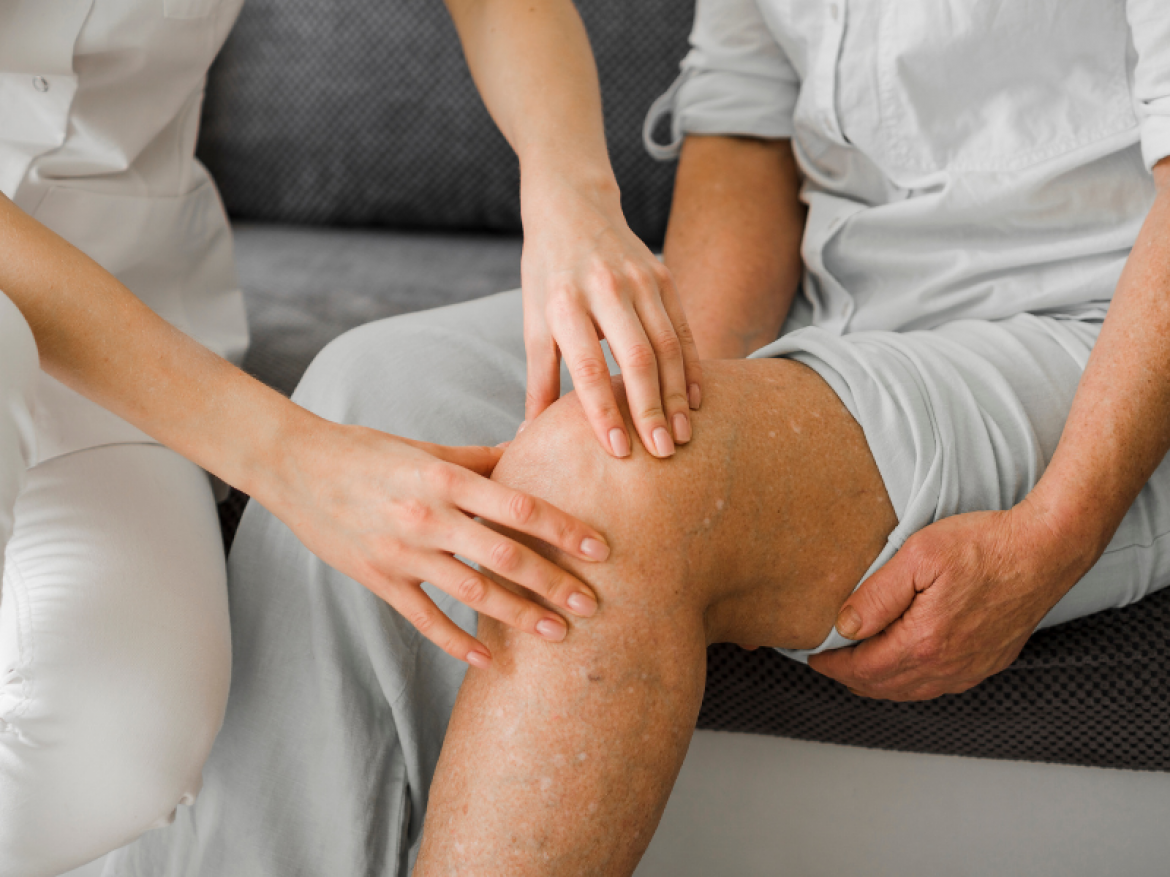As we age, our bodies naturally undergo changes that affect mobility and overall joint health, with the knees being one of the most common areas to experience discomfort. Knee Pain in Aging Adults can arise due to wear and tear, reduced flexibility, and conditions like osteoarthritis. This can severely impact the quality of life for older adults, limiting their ability to perform everyday activities. However, there are various ways to manage and reduce knee pain to ensure better mobility and comfort.
In this blog, we will explore how aging affects knee health and provide practical tips for managing knee pain in older adults.
How Aging Impacts Your Knee Health
Aging plays a significant role in joint health, particularly in the knees. Several factors contribute to increased knee pain in older adults, including:
Joint Degeneration: Over time, the cartilage in the knee wears down due to constant use. This degeneration reduces the cushioning between bones, leading to pain, stiffness, and inflammation.
Osteoarthritis: A common age-related condition, osteoarthritis causes the gradual breakdown of joint cartilage, resulting in pain and reduced flexibility in the knees.
Weakened Muscles: As we age, muscle mass naturally declines, leading to weaker muscles around the knees. This can affect the stability and strength of the joints, making knee pain more likely.
Decreased Flexibility: Aging reduces the flexibility of tendons and ligaments, making movements more rigid and less fluid. This reduced range of motion can cause strain and discomfort in the knees.
Tips for Managing and Reducing Knee Pain
While aging is inevitable, there are ways to manage and reduce knee pain to improve mobility and maintain a higher quality of life:
Exercise Regularly: Low-impact exercises, such as walking, swimming, and cycling, help strengthen the muscles around the knee and improve joint flexibility. Regular exercise also promotes healthy blood flow, reducing stiffness and pain.
Maintain a Healthy Weight: Excess weight places added pressure on the knees, accelerating wear and tear. Maintaining a healthy weight reduces strain on the knee joints and helps alleviate pain.
Apply Heat and Cold Therapy: Heat therapy can soothe stiff joints, while cold therapy reduces inflammation and numbs pain. Alternate between these treatments to manage discomfort.
Consider Physical Therapy: Physical therapy can help older adults regain strength and improve flexibility in the knees. A therapist can design a personalized exercise plan to reduce pain and restore mobility.
Use Knee Supports: Braces or knee supports can provide additional stability to weakened knees. These devices can help reduce the load on the joint and prevent further damage.
Consult a Specialist: For persistent knee pain, consulting an expert is essential. Dr. Krishna Poddar, a renowned knee pain consultant in Kolkata, offers specialized care for older adults experiencing chronic knee pain. With comprehensive treatment options, from medication to physiotherapy, Dr. Poddar can help you find relief.
FAQs
Q: What causes knee pain in older adults?
A: Knee pain in older adults is often caused by joint degeneration, osteoarthritis, weakened muscles, and reduced flexibility. Wear and tear over time can lead to discomfort and limited mobility.
Q: How can I reduce knee pain without surgery?
A: Regular exercise, maintaining a healthy weight, physical therapy, and using knee braces or supports can all help reduce knee pain without surgery. For specialized care, consulting a knee pain consultant in Kolkata is advisable.
Q: Is physical therapy effective for managing knee pain?
A: Yes, physical therapy can be highly effective in strengthening the muscles around the knee, improving flexibility, and reducing pain. A personalized therapy plan is often recommended for long-term relief.
Q: When should I see a specialist for knee pain?
A: If knee pain persists despite home remedies and lifestyle changes, it’s important to consult a specialist. Dr. Krishna Poddar, an expert at a pain clinic in Kolkata, can provide an accurate diagnosis and recommend the best treatment options.
Conclusion
Knee pain is a common issue among aging adults, but it doesn’t have to be a limiting factor in your life. By following simple lifestyle changes and exercises, you can effectively manage and reduce discomfort. For more severe or persistent pain, it’s important to consult a specialist like Dr. Krishna Poddar, the leading knee pain consultant in Kolkata, who can guide you toward effective treatments at a trusted pain clinic in Kolkata. Take the necessary steps today to maintain knee health and improve your mobility for a pain-free future.

